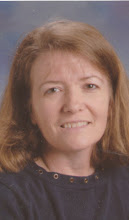Sunday, May 2, 2010
Teaching Philosphy
I believe all children can learn and have a great potential for learning. Children enter my classroom at various levels of development. It is my responsibility to meet the children at their level and help them achieve their greatest potential. The most productive learning classroom environment for young children promotes emotional, social, and academic growth. My classroom management over the past 15 years has evolved from three basic principles: be firm, fair, and consistent. My classroom is a warm, caring, and fun place where everyone (parents, as well) feels safe, accepted, and welcome.
Technology in the Classroom
Children learn in many different ways. Some children are visual learners, while other may be auditory or kinestetic learners. What is common denominator for all children to learn? Teachers must make learner fun and interesting for students. The use of technology, such as SmartBoards, Nintendo DS, laptops, digital cameras (to name a few examples) in the classroom is perfect tool for children to learn. Why? The answer is simple...the children are so involved in technology and having fun...they don't realize that they are learning at the same time. Maybe we can add teaching students how to multi-task as an objective. It may not be a stated goal and objective, but is occurring daily in classrooms across the country and the world. How do we know it is happening in classrooms around the world? Technology of course...Have you checked out YouTube lately?
Creating a Learning Environment ...aka... A Classroom
As a teacher, I know that I must create a caring, friendly, and safe environment for children. Children need to know that trying their best is all one can ask of them. A caring and supportive teacher can build that environment of trust. In the article, A Quality Teacher is a Caring Teacher, the NEA gives several examples of what a caring teacher does for/with her children. Teachers are role models. Ask yourself, "What kind of role model will I be to students?" That should be a question that a teacher asks everyday. I really do think about that question everyday with my group of Kindergartners.
Creating a Firm, Fair, and Consistent Classroom
My very first letter of recommendation from my principal described my classroom management skills as firm, fair, and consistent. I am very proud that my administrator recognized those traits in my classroom. Kristen Tucker describes a compassionate teacher as firm, fair, and consistent in her article, Compassionate Preschool Teachers are the Best Educators. When handling classroom situations, a teacher must be consistent in their decisions making, especially issues concerning discipline). Tucker commented, "Kids thrive on consistency, so firm and fair treatment goes a long way". Even after teaching for 22 years, I still consider my approach to classroom management as firm, fair and consistent. I am very proud to describe myself as firm, fair and consistent.
Are Teachers Professionals
Well, of course we are professionals. No, we are not paid the salaries of doctors, lawyers, or engineers. Stop and think about how those professionals were trained in their fields. There were many dedicated and hard-working teachers along the path to their professional careers. Corey Bower asked in his post, Are Teachers Professionals , two very important questions, "Are teachers treated less like professionals than people in equally or more prestigious jobs? Do people in other jobs have more autonomy or professional latitude than teachers?"
Teachers are Professionals
A very wise and wonderful principal told me many years ago, "If you act and dress like a professional then people will treat you like a professional'" Every school has a handbook that addresses the school's dress code.
In Olivia Barker's article, Schools enforce dress codes — for teachers, a principal in California is quoted, "Our expectations for students are so high, we can't be hypocritical and expect less of teachers," says Federwisch, who hears complaints from parents about the double standard. "Kids are looking to teachers for direction and guidance, not to be their buddies." And from parents, says Victoria Lackey, the PTA's vice president. "Bellybutton rings have a great place in the world, but not in my child's classroom," she says. "We don't want kids coming home saying, 'Oh, Mom, those bellybutton rings — we want one!' " Do you really want your Kindergartner coming home to ask you that question? I certainly don't!
In Olivia Barker's article, Schools enforce dress codes — for teachers, a principal in California is quoted, "Our expectations for students are so high, we can't be hypocritical and expect less of teachers," says Federwisch, who hears complaints from parents about the double standard. "Kids are looking to teachers for direction and guidance, not to be their buddies." And from parents, says Victoria Lackey, the PTA's vice president. "Bellybutton rings have a great place in the world, but not in my child's classroom," she says. "We don't want kids coming home saying, 'Oh, Mom, those bellybutton rings — we want one!' " Do you really want your Kindergartner coming home to ask you that question? I certainly don't!
Subscribe to:
Comments (Atom)
